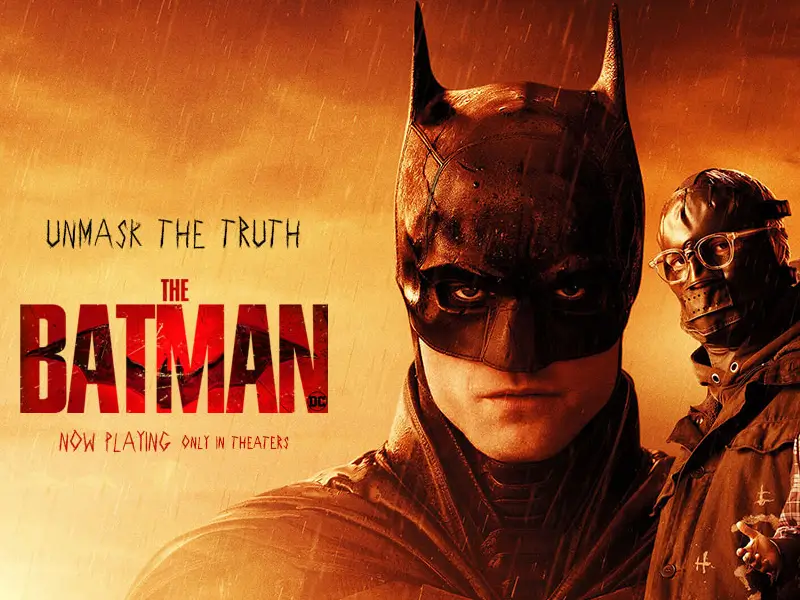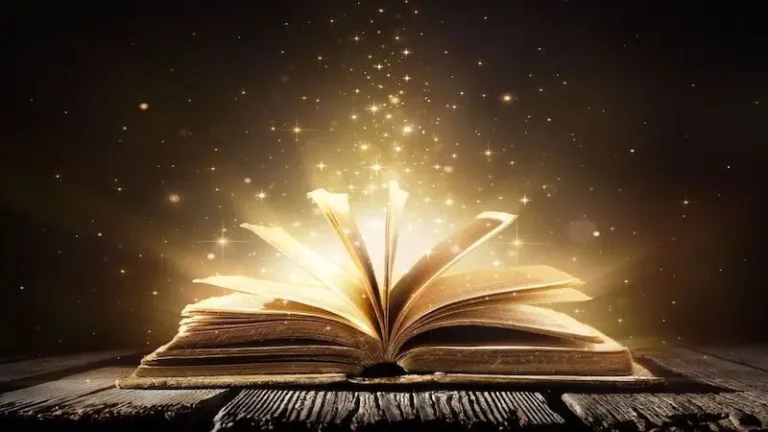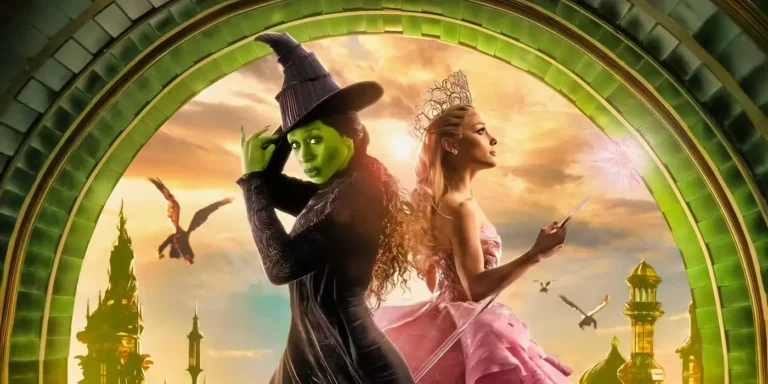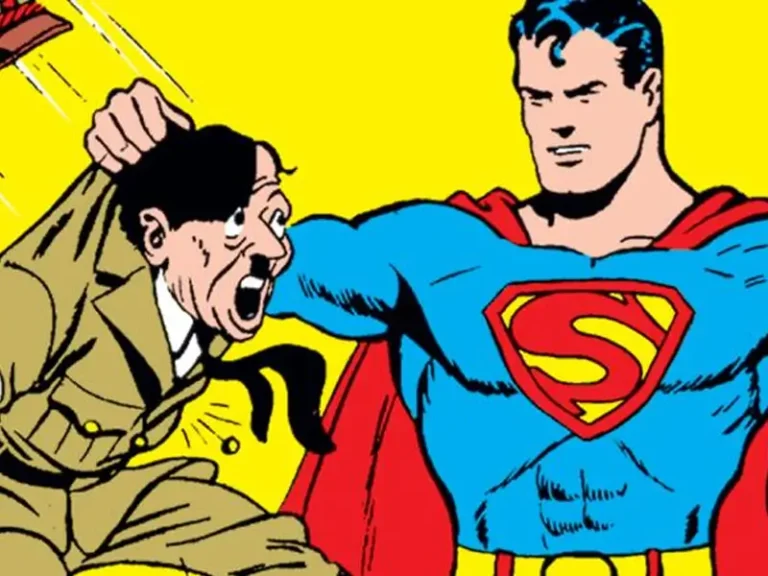First, a little bit of context.
“They hide amid chaos.
Waiting to bite like a snake.”
Gotham is a fictional city created by Bob Kane and Bill Finger. It’s a place consumed by darkness, where crime festers like a disease. Criminals walk the streets without fear. Law and order barely exist. Corrupt politics only add to the chaos. For the average citizen, every step outside feels like a gamble.
“But I’m still here.
I am watching.”
When the justice system fails, someone has to step up. Someone who doesn’t wait for permission to do what’s right. That someone is Batman.
Bruce Wayne, Gotham’s most famous orphan and son of former mayor Thomas Wayne, is far from the charming billionaire people expect. Haunted by his parents’ murder, he’s spent years consumed by grief and vengeance. Now, two years into his journey as Batman, he’s a shadow more than a man—misunderstood by the people and barely tolerated by the police.
Then the Riddler appears.
A sadistic killer with a taste for puzzles, he murders Mayor Don Mitchell and leaves a message meant for one person only—Batman. Partnering with Lt. Gordon, Batman dives deep into the case. What he uncovers is far more than just a string of murders. It’s a revelation about the city itself.
Not planned
This version of The Batman wasn’t part of the original plan. Initially, it was a DCEU project with Ben Affleck set to direct and star. But with creative challenges mounting, Affleck stepped away. Matt Reeves, known for Planet of the Apes, came on board and reimagined the story. He pitched something darker. More grounded. More personal.
Affleck left completely, and Reeves was free to build a fresh vision. The result? A standalone Batman movie—unconnected to the DCEU or even Joaquin Phoenix’s Joker. A new universe. A new tone.
Reeves didn’t just write a script. He built a mood.
Drawing inspiration from The Long Halloween, Batman: Year One, and Batman: Ego, Reeves leaned into the psychological weight of Bruce Wayne. The movie also borrows heavily from classic cinema—The French Connection, Chinatown, and Clute. The Riddler is inspired by the real-life Zodiac Killer and shaped further by Fincher’s Se7en and Zodiac.
Even the Batmobile is a tribute, modeled after John Carpenter’s Christine. It all blends into a film that feels like a love letter to 1970s detective noir.
What makes this movie work is the characters.
Batman is still finding his footing. He’s not a billionaire playboy or a flawless crime fighter. He’s angry, raw, and full of self-doubt. He barely exists as Bruce Wayne. This is a man who’s lost in his mission.
Alfred, his only family, struggles to connect with him. But over time, Batman changes. He learns through pain. Through failure. Through the chaos Gotham throws at him.
Catwoman is another standout. She’s fierce, emotional, and layered. Her chemistry with Batman is natural and magnetic.
Then there’s Gordon—his partnership with Batman brings a sense of stability. Their trust, built slowly, becomes a core of the story. Riddler, meanwhile, is chilling. He sees himself as righteous, a dark reflection of Batman. And his presence forces Bruce to look inward.
Penguin gets limited screen time but leaves a mark. Carmine Falcone feels like a ghost from Gotham’s corrupt past.
Matt Reeves pulls it all together with laser focus.
The writing is tight. The pacing, despite a 3-hour runtime, rarely drags. William Hoy, who edited Se7en, helps give the film its sharp edge.
Visual
Visually, it’s breathtaking. Cinematographer Greig Fraser (who also shot Dune) paints Gotham in shadow and red light. The skyline shots. The car chase in the rain. The silhouette of Batman through smoke and fire. It all feels iconic.
There’s very little flash. The action is brutal and efficient. No over-the-top stunts, just raw energy.
Michael Giacchino’s score adds the final layer—tense, emotional, and unforgettable. The inclusion of Nirvana’s Something in the Way adds to the mood without ever feeling forced.
Performance-wise, this film delivers.
Robert Pattinson proved every skeptic wrong. His Batman is vulnerable yet intimidating, lost but determined. You feel his pain.
Paul Dano’s Riddler is quietly terrifying. Zoë Kravitz gives Catwoman depth and heart. Colin Farrell completely disappears into the role of Penguin. Jeffrey Wright’s Gordon is steady and believable. John Turturro and Andy Serkis bring strong support.
Even minor characters add something real.
So where does The Batman stand in the DC legacy?
High. Maybe even at the top.
It captures what other versions have missed—the detective. The psychological toll. The realism. Nolan’s trilogy gave us spectacle and themes. Snyder’s gave us strength and power. But Reeves gave us truth.
This isn’t a superhero movie. It’s a crime film. A character study. A slow burn. And it’s not for everyone.
If you’re looking for non-stop action, this isn’t it. But if you’re a fan of Batman, noir, or carefully told thrillers—this is gold.
Currently, it holds an IMDb rating of 8.2 and 86% on Rotten Tomatoes.
“A famous actor once said: ‘There are no new stories. Only new ways to tell them.’”
That’s what Matt Reeves did. He didn’t try to reinvent Batman. He told the story differently. More honestly. And more human.
And in doing so, he gave us something unforgettable.
This article is written by Raza Zahur Khan for Wiz Fact.
If this article made you think—bookmark Wiz Fact.
We’re just getting started.
Smart, rebellious ideas are what we do here. Soon, we’ll launch our newsletter too—so these insights can fly straight to your inbox. No fluff. Just facts worth knowing.








